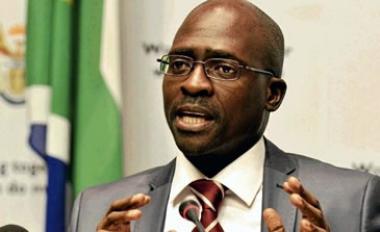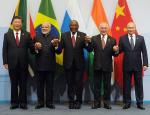Gigaba says Eskom tariff hikes necessary
 Public Enterprises Minister Malusi Gigaba.
Public Enterprises Minister Malusi Gigaba.
Eskom's request for a 16% tariff increase from the National Energy Regulator of SA (Nersa) was a necessity, said Public Enterprises Minister Malusi Gigaba on Tuesday.
Addressing a SABC breakfast briefing, Gigaba said although the power parastatal wished it could have kept its request to a single-digit figure, the double-digit tariff hike request was necessitated by the tough conditions prevailing in the economy.
"The economic situation is biting, but we must balance that with future needs [with] our ability to ensure security of supply of electricity. This 16% [request] could have been ... higher had Eskom continued to pursue a three-year Multi-Year Price Determination (MYPD).
"We decided to stretch this over five years and said that in the fifth year, we wish to move towards single-digit figures. This is to ensure that we alleviate the burden of having to pay a high figure," explained Gigaba.
Last month, the power parastatal asked Nersa for a total 16% tariff hike, with 13% of the hike going for Eskom's own needs and the other 3% going to support the introduction of independent power producers (IPPs) under a proposed five-year MYPD.
The current three-year MYPD 2 comes to an end in March 2013. The power parastatal is proposing a five-year determination for MYPD 3, running from 1 April 2013 to 31 March 2018.
The increase represents a total price increase from the current 61 cents per kilowatt hour in 2012/13 to 128 cents per kilowatt hour in 2017/18. This would include targeted savings in operating and primary energy costs.
The request to the regulator, Gigaba said, did not consider the country's Integrated Resource Plan (IRP) 2010-2030, which states the country's intention to add 9 600 megawatts of nuclear energy as well as renewables to the country's energy mix by 2030. The IRP is South Africa's 20-year plan towards the balancing of the production of electricity and consumption.
"We have not included the IRP2; the funding model must still be determined by government," he said.
He called on South Africans to "bear the collective pain" of the tariffs, adding that the poor would continue to be shielded against the high tariffs. He called on municipalities to consider the poor when charging electricity tariffs.
Gigaba said coal would continue to play a role in the production of electricity in South Africa, given that the country was coal rich and exported coal to other countries.
Last week, the Energy Department held a signing ceremony with the preferred bidders of the first window of its Renewable Energy Independent Power Producer Programme (REIPPP). This was the first step in bringing renewable energy on a large scale into the country's energy mix.

















